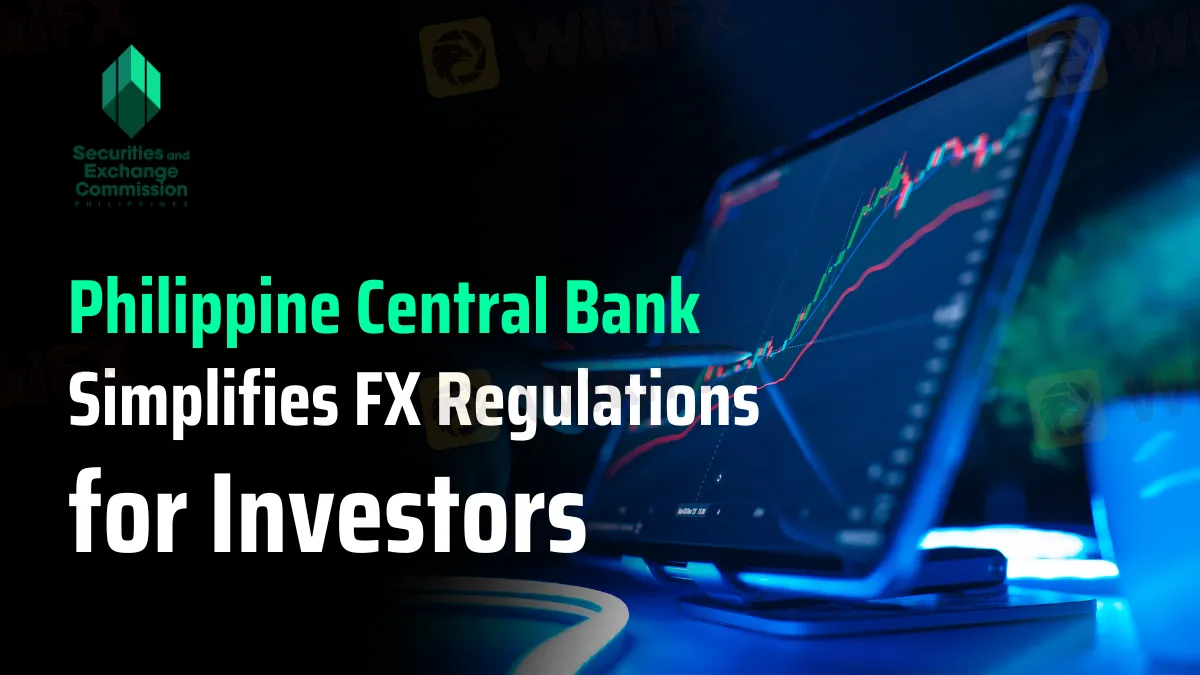简体中文
繁體中文
English
Pусский
日本語
ภาษาไทย
Tiếng Việt
Bahasa Indonesia
Español
हिन्दी
Filippiiniläinen
Français
Deutsch
Português
Türkçe
한국어
العربية
Philippine Central Bank Simplifies FX Regulations for Investors
Abstract:The Philippine central bank's new FX regulations streamline investment processes, eliminating bureaucratic hurdles and fostering a more attractive environment for foreign investors.

The Philippine central banks monetary board has approved significant amendments to foreign exchange (FX) regulations, aiming to simplify the process for foreign investments in the country. These changes are designed to make the Philippines a more attractive destination for foreign investors by streamlining procedures and reducing bureaucratic hurdles.
Under the new regulations, foreign investments can now be registered upon reporting by any authorized agent bank to the Bangko Sentral ng Pilipinas (BSP). This move eliminates the previous requirement for the issuance of Bangko Sentral Registration Documents, provided the investments are registered through the authorized agent banks.
The amendments also include streamlined reporting forms and procedures, making it easier for authorized agent banks to comply with the new guidelines. These changes are expected to reduce the administrative burden on banks and investors alike, fostering a more efficient investment environment.

A transitional period has been established, lasting until September 30, 2024, to allow authorized agent banks to adjust their systems and processes in line with the new regulations. During this period, banks are expected to make the necessary preparations to fully comply with the amended guidelines.
These regulatory adjustments are part of the BSP‘s ongoing efforts to enhance the ease of doing business in the Philippines. By simplifying the process for registering foreign investments, the central bank aims to attract more foreign capital, which is crucial for the country’s economic growth and development.
The streamlined process is anticipated to boost investor confidence, as it provides a clearer and more efficient pathway for foreign investments. This initiative aligns with the broader goals of the Philippine government, which are to create a more favorable investment climate and stimulate economic activity.
Overall, the amendments to the FX regulations represent a significant step towards improving the regulatory landscape for foreign investments in the Philippines. The BSPs proactive approach to updating its policies reflects its commitment to supporting economic growth and fostering a competitive business environment.
About BSP
The Bangko Sentral ng Pilipinas (BSP) is the central bank of the Philippines, responsible for maintaining monetary stability and ensuring a sound financial system. In the context of recent amendments to foreign exchange regulations, the BSP has taken proactive steps to simplify the process for foreign investments. By allowing foreign investments to be registered upon reporting by authorized agent banks and streamlining related procedures, the BSP aims to enhance the ease of doing business in the Philippines, attract foreign capital, and support the country's economic growth.

Disclaimer:
The views in this article only represent the author's personal views, and do not constitute investment advice on this platform. This platform does not guarantee the accuracy, completeness and timeliness of the information in the article, and will not be liable for any loss caused by the use of or reliance on the information in the article.
Read more

Rising Risk of Japan Intervening in the Yen's Exchange Rate
The Japanese yen faces both internal and external pressures, with a potential intervention by the Japanese government looming.

Is the stronger dollar a threat to oil prices?
Oil prices dropped more than 1% on Wednesday, mainly due to the strengthening of the dollar and the increase in U.S. fuel inventories, which collectively suppressed the price rise.

RM5.9M Lost to "Davidson Kempner Capital Management" Facebook Scam
A private contractor in Malaysia faced a devastating loss of over RM5.9 million after falling victim to a fraudulent investment scheme promoted on Facebook. Tempted by the scheme’s impressive claims and credentials, the victim began investing in September 2024. The investment process required him to download an application called A-Trade, which was readily available on the Apple Store.

Is There Still Opportunity as Gold Reaches 4-Week High?
Gold Continues to Rise, can the Bulls Keep Going? Recently, gold prices have been on the rise, especially following the release of the non-farm payrolls data, as demand for gold as a safe-haven asset continues to increase.
WikiFX Broker
Latest News
High-Potential Investments: Top 10 Stocks to Watch in 2025
US Dollar Insights: Key FX Trends You Need to Know
Why Is Nvidia Making Headlines Everywhere Today?
Discover How Your Trading Personality Shapes Success
FINRA Charges UBS $1.1 Million for a Decade of False Trade Confirmations
Bitcoin in 2025: The Opportunities and Challenges Ahead
BI Apprehends Japanese Scam Leader in Manila
Big News! UK 30-Year Bond Yields Soar to 25-Year High!
SQUARED FINANCIAL: Your Friend or Foe?
Join the Event & Level Up Your Forex Journey
Currency Calculator






